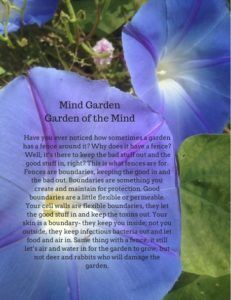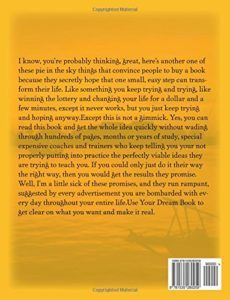Effective discipline for an exceptional child
Pitfalls of conventional guidance and discipline practice with children who struggle: Effective discipline for an exceptional child.
The Fall From Eden
In the beginning, there was limitless love.
Unconditional
No performance standards to meet
No criticism
No judgment
No morality or immorality
No wrong
All right
All good
A baby brings joy to others just by Being. There are no conditions or performance demands to meet. There is no punishment or judgment for throwing up, incontinence, etc.
Then, as the child matures, they receive criticism for failing to perform properly, for errors, suddenly they must do and do it right, errors and failures result in punishment and pain. The parent and others blame the child for their unwanted feelings. You made me mad, so you should feel bad, I will make you feel bad and I will hurt you. You disappointed me, you made me feel sad, so you must feel guilty and bad. You made me feel afraid, so I must get angry and control and rebuke you lest you cause my worst fears about you come true.
The forbidden fruit of knowledge has been ingested.
Innocence is lost.
Shame becomes status quo and the child quickly tries to cover themselves, ashamed of who they are, how they look, trying to hide their true and beautiful self. No longer is it okay to let yourself be as you truly are. Guises, shields, masks, and fake personas are adopted so that no one will see the vulnerable joyous person underneath.
Fear becomes the primary motivator of behavior- fear of being found out, of being uncovered, of judgment, and pain. Shame about body image and basic human needs now denied creates the prison-pen of punishment now internalized so that we hold ourselves in a state of fear and pain without the continued abuse and lies from outside.
The child, after being blamed, criticized, berated, held responsible for the unwanted feelings of parents, punished before the age of 5, internalizes unconsciously this false and evil system so well, that they now have learned to automatically punish themselves without even thinking about it.
So now you have learned to feel bad, horrible even, when you make a mistake, when you experience conflict with another, when anyone around you is less than happy, especially when you are criticized, rejected, or neglected.
You create so much pain and punishment for yourself that you are desperate to feel good. You will take drugs, abuse yourself with alcohol, take risks, steal, anything to escape the pain you now create for yourself.
You may vacillate between self-doubt and self-blame for these awful feelings, or you may lash out in anger at others because now you think other people are making you feel badly when they don’t give you what you want or they are upset. You may feel responsible for making everybody else feel okay and never ask them for what you want. Or you may dominate, control, and blame others, hurting them because you falsely accuse them of causing your pain. You have learned to limit your love for yourself and others. You were loveable only when you behaved properly, if not then love was withdrawn, now you only love yourself and others when you or they perform the way you think is proper and expected.
The Journey Back to Eden
Want love without limits?
Limitless love is love that is eternal. Eternity is not just a long time, it simply is. In the same way love is. You don’t have to perform or measure up to be worthy of love. You simply are. Love is available to you and from you, without limits, at all times. You can access this through practice and intention, by learning to have dominion over your attention.
How is eternity not just a long time but simply a quality that is? Think of it this way. You would not say 2+2=4 “for a long time.” There is no beginning or end to this value, 2+2 always was equal to four and always will be, it won’t at some point in the future cease to be or become something else. It just is.
In the same way, limitless love, love without limits, unconditional love, this is a love that simply is. A love that requires no specific behavioral set, has no conditions, is always available in infinite, or eternal, supply. How would your experience be different if you were to practice having limitless love for yourself, even when you fail, especially when you fail or are weak, and especially when someone else is not happy with you or having some sort of fit over something?
In the end effective discipline for an exceptional child is just so.
How would you interact and experience differently, more positively, more lovingly, with your children when you discipline them or they make errors, with your spouse, your lover, your friends, should you maintain attention on limitless love even when you disagree with what they do, say, think, or feel? What sort of inner peace, support, insight, and inspiration might you welcome and receive were you to practice maintaining this kind of focus? I can tell you from experience that the results are nothing short of miraculous.
If you want to raise your consciousness, elevate your experience, experience God intimately and first-hand pouring into and through you, if you would like to change the way you react to friends, children, co-workers, or you partner, experiment with putting this into practice, this focus on love without limits. Practice clearing your mind of distractions in quiet moments alone first. Connect with and welcome in that which is divine and loving; it’s in you already, it’s in everything everywhere all around you, you can breathe it in as well as broadcast it out energetically. Learn how this feels in your body, then shift your attention, your feeling in your body, your energy, your vibration, in this way when you interact with others, again especially when someone important to you does something you disagree with, or disagrees with you, or when you disagree with yourself.
Stop putting yourself in a place of punishment. Stop punishing those around you to try and make them behave, think, speak, or feel the way you think they should. Feeling bad will not help you do better. Focusing on worry, regret, or anger, all forms of departing from the perfect present moment, will not make you or others perform better. Stop equating your self-worth to measures of performance. Stop judging others as good or bad based on what they may say, think, feel, or do.
Love yourself, most especially, and love your children, your mate, your friends, without limits. When you do this with your children they will find your posture and tone towards them less threatening, demeaning, accusatory, angry, and unhelpful. They will feel the support and faith you have for them without you having to speak a word, and in this way you will guide them to remembering and more becoming the wonderful beings they truly are as they were born into this world. Eliminate the need for defensiveness, denial, anger, and aggression.
This is effective discipline for an exceptional child.
If you would like to see how to put limitless love into practice when managing your child’s behavior in more specific and concrete terms, check out my video course “Behavior Management at It’s Best” at this link:
3 One-Minute Secrets to Success
Garden of the Mind (Mind Garden)
Have you ever noticed how sometimes a garden has a fence around it? Why does it have
a fence? Well, it’s there to keep the bad stuff out and the good stuff in, right?
This is what fences are for, this is what boundaries are for, keeping the good in
and the bad out. When we want abundant produce we prepare the soil, pull the weeds
and throw them out, and plant the seeds of the good things we want to see, feel,
smell, and taste.
Your mind is like this garden, too. Except sometimes we get confused and keep the
good thoughts out and the bad in. Tend the garden of your mind carefully, pull the
weeds of negative, fearful, and unhelpful thoughts, and throw them outside the
fence. Plant the seeds of your dreams and hopes, thoughts that feel good, by taking
a few moments daily to reflect on your dreams and imagine them coming true in as
much detail as you can. If a drought comes give them more water. If a freeze comes
don’t lie in a bed of weeds and despair, pull out those weeds and plant some new
seeds. Keep it up and you can’t help but be successful living in the garden of your
dreams.
Faith
Have faith the seeds will grow with your care and produce fruit and flowers.
Planting Seeds
How to plant seeds 101- Dream Book
How to make your dreams come true in ten minutes a day:
Get yourself a book you really like with blank pages in it. Start writing your
dreams, one per page. Draw symbols or images to go with each dream, or paste in a
photograph, or go to google images and pick and print an image sized for the dream
page it goes with. Review your dreams and study the images each morning when you
wake up and each night right before you go to sleep.
Get a list of cognitive distortions, practice worksheets, short videos, and more ideas and instructions for teaching the thought replacement practice and creating a dream book in the free Mindgarden mini-course by clicking here.
If you would like the free mini-course Behavior Management Tips and T00ls Giveaway, click here.
With love,
Brad
Brad@bradmasoncounselor.com
I hope you enjoyed “Effective discipline for an exceptional child.”
I want to create healthy happy life
It can be hard to work with a mind that keeps going to the problems and worries. It's time to teach children their power over thoughts and feelings.
I would like teachable exercises for; replacing thoughts that are not helpful, reasonable, or true, creating joy and emotional resilience, Mindgarden metaphor illustrating power and choice in thoughts, Dream Book strategy for identifying clear goals and building motivation, a video explaining how NOT to let others or situations have the power to bring you down!

